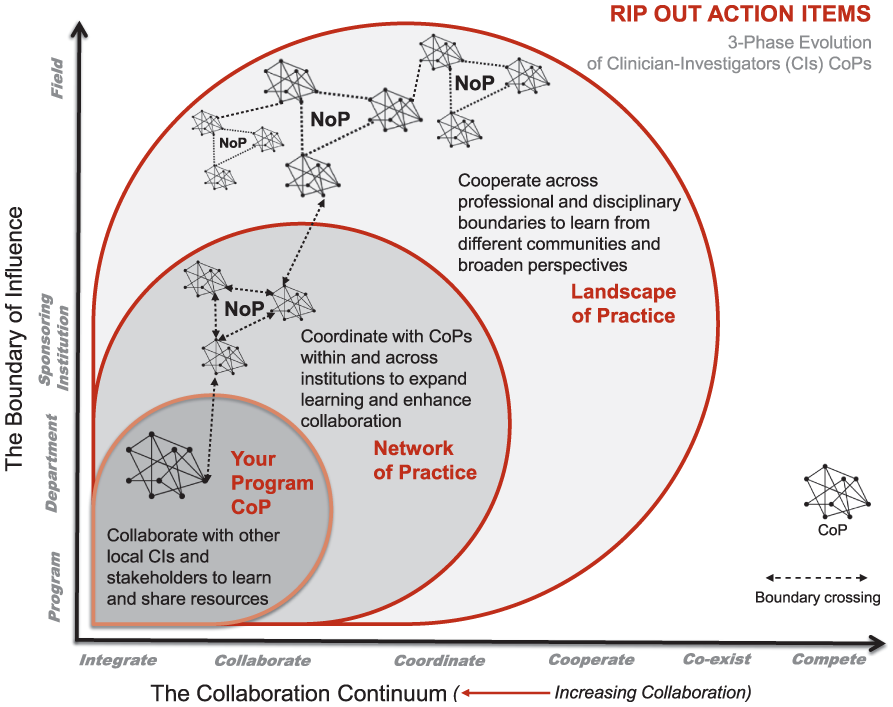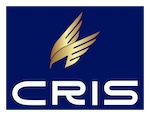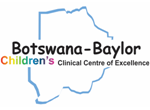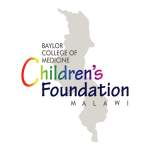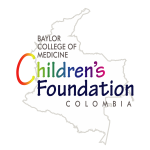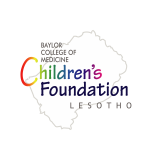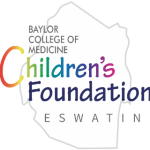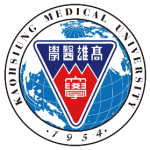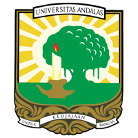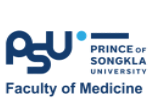What is a
Community of Practice?
The concept of a Community of Practice (CoP) was initially developed to describe social learning within local situated practices. CoPs are distinguished from other types of communities by three things:
- A domain or joint enterprise is a collective competence that distinguishes the members of the community – it is what we care about.
- Mutual engagement describes the intentional aspect of interacting to learn from each other – it reflects who cares about it.
- Practice takes time and sustained interactions where individuals share tips and tricks for overcoming challenges or making progress, and over time, they develop a shared repertoire of resources.
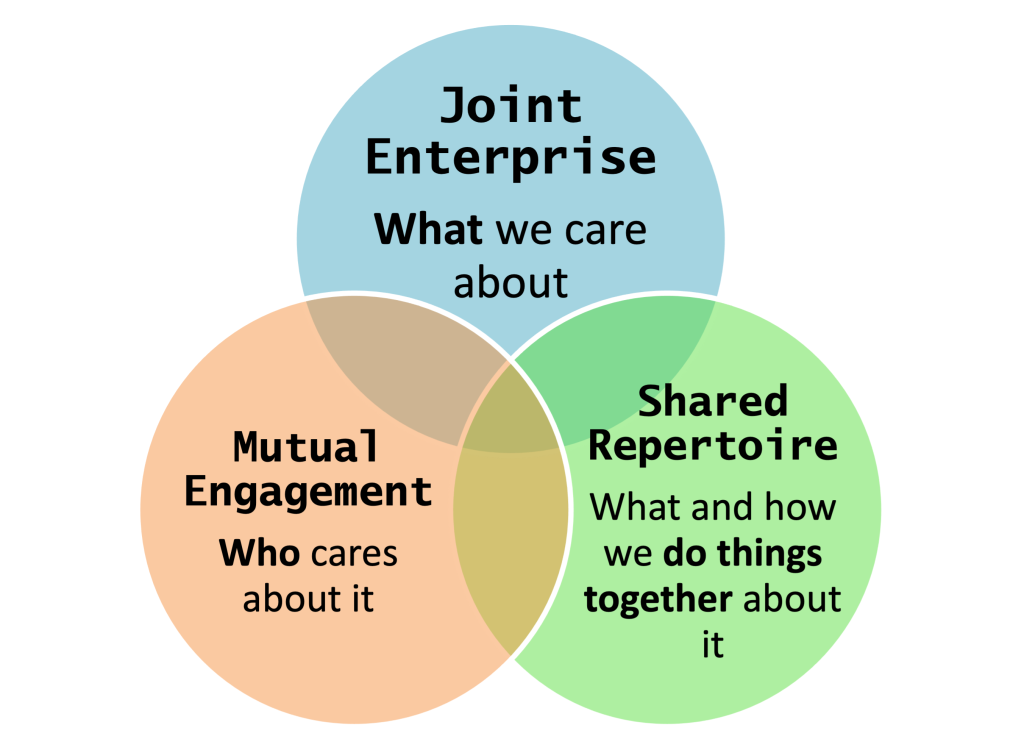
What is a
Network of Practice?
The CoP concept has since evolved to encompass learning across multiple communities, forming a Network of Practice (NoP). The collective efforts of these communities shape the “knowledge ecosystem” of the field (i.e., Landscape of Practice, LoP) over time. In the context of health science programs, establishing a CoP within a department can lay a foundation for an extensive network that spans multiple CoPs within and beyond the institution.
Burns A, Orange J, Thammasitboon S. Building a Strong Clinician-Investigator Community of Practice in Graduate Medical Education, JGME Rip Out
